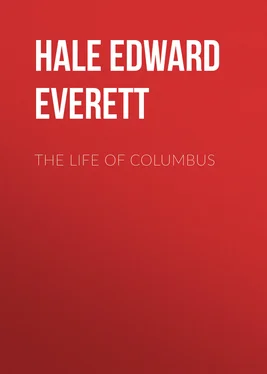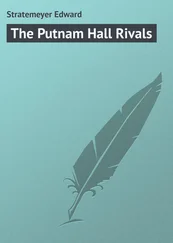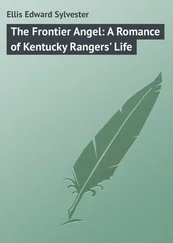Edward Hale - The Life of Columbus
Здесь есть возможность читать онлайн «Edward Hale - The Life of Columbus» — ознакомительный отрывок электронной книги совершенно бесплатно, а после прочтения отрывка купить полную версию. В некоторых случаях можно слушать аудио, скачать через торрент в формате fb2 и присутствует краткое содержание. Жанр: Биографии и Мемуары, literature_19, foreign_antique, на английском языке. Описание произведения, (предисловие) а так же отзывы посетителей доступны на портале библиотеки ЛибКат.
- Название:The Life of Columbus
- Автор:
- Жанр:
- Год:неизвестен
- ISBN:нет данных
- Рейтинг книги:4 / 5. Голосов: 1
-
Избранное:Добавить в избранное
- Отзывы:
-
Ваша оценка:
- 80
- 1
- 2
- 3
- 4
- 5
The Life of Columbus: краткое содержание, описание и аннотация
Предлагаем к чтению аннотацию, описание, краткое содержание или предисловие (зависит от того, что написал сам автор книги «The Life of Columbus»). Если вы не нашли необходимую информацию о книге — напишите в комментариях, мы постараемся отыскать её.
The Life of Columbus — читать онлайн ознакомительный отрывок
Ниже представлен текст книги, разбитый по страницам. Система сохранения места последней прочитанной страницы, позволяет с удобством читать онлайн бесплатно книгу «The Life of Columbus», без необходимости каждый раз заново искать на чём Вы остановились. Поставьте закладку, и сможете в любой момент перейти на страницу, на которой закончили чтение.
Интервал:
Закладка:
On the tenth of October the men made remonstrance, which has been exaggerated in history into a revolt. It is said, in books of authority, that Columbus begged them to sail west only three days more. But in the private journal of the tenth he says simply: “The seamen complained of the length of the voyage. They did not wish to go any farther. The Admiral did his best to renew their courage, and reminded them of the profits which would come to them. He added, boldly, that no complaints would change his purpose, that he had set out to go to the Indies, and that with the Lord’s assistance he should keep on until he came there.” This is the only passage in the journal which has any resemblance to the account of the mutiny.
If it happened, as Oviedo says, three days before the discovery, it would have been on the eighth of October. On that day the entry is, “Steered west southwest, and sailed day and night eleven or twelve leagues—at times, during the night, fifteen miles an hour—if the log can be relied upon. Found the sea like the river at Seville, thanks to God. The air was as soft as that of Seville in April, and so fragrant that it was delicious to breathe it. The weeds appeared very fresh. Many land birds, one of which they took, flying towards the southwest, also grajaos, ducks and a pelican were seen.”
This is not the account of a mutiny. And the discovery of Columbus’s own journal makes that certain, which was probable before, that the romantic account of the despair of the crews was embroidered on the narrative after the event, and by people who wanted to improve the story. It was, perhaps, borrowed from a story of Diaz’s voyage. We have followed the daily record to show how constantly they supposed, on the other hand, that they were always nearing land.
With the eleventh of October, came certainty. The eleventh is sometimes spoken of as the day of discovery, and sometimes the twelfth, when they landed on the first island of the new world.
The whole original record of the discovery is this: “Oct. 11, course to west and southwest. Heavier sea than they had known, pardelas and a green branch near the caravel of the Admiral. From the Pinta they see a branch of a tree, a stake and a smaller stake, which they draw in, and which appears to have been cut with iron, and a piece of cane. Besides these, there is a land shrub and a little bit of board. The crew of the Nina saw other signs of land and a branch covered with thorns and flowers. With these tokens every-one breathes again and is delighted. They sail twenty-seven leagues on this course.
“The Admiral orders that they shall resume a westerly course at sunset. They make twelve miles each hour; up till two hours after midnight they made ninety miles.
“The Pinta, the best sailer of the three, was ahead. She makes signals, already agreed upon, that she has discovered land. A sailor named Rodrigo de Triana was the first to see this land. For the Admiral being on the castle of the poop of the ship at ten at night really saw a light, but it was so shut in by darkness that he did not like to say that it was a sign of land. Still he called up Pedro Gutierrez, the king’s chamberlain, and said to him that there seemed to be a light, and asked him to look. He did so and saw it. He said the same to Rodrigo Sanchez of Segovia, who had been sent by the king and queen as inspector in the fleet, but he saw nothing, being indeed in a place where he could see nothing.
“After the Admiral spoke of it, the light was seen once or twice. It was like a wax candle, raised and lowered, which would appear to few to be a sign of land. But the Admiral was certain that it was a sign of land. Therefore when they said the ‘Salve,’ which all the sailors are used to say and sing in their fashion, the Admiral ordered them to look out well from the forecastle, and he would give at once a silk jacket to the man who first saw land, besides the other rewards which the sovereigns had ordered, which were 10,000 maravedis, to be paid as an annuity forever to the man who saw it first.
“At two hours after midnight land appeared, from which they were about two leagues off.”
This is the one account of the discovery written at the time. It is worth copying and reading at full in its little details, for it contrasts curiously with the embellished accounts which appear in the next generation. Thus the historian Oviedo says, in a dramatic way:
“One of the ship boys on the largest ship, a native of Lepe, cried ‘Fire!’ ‘Land!’ Immediately a servant of Columbus replied, ‘The Admiral had said that already.’ Soon after, Columbus said, ‘I said so some time ago, and that I saw that fire on the land.’” And so indeed it happened that Thursday, at two hours after midnight, the Admiral called a gentleman named Escobedos, officer of the wardrobe of the king, and told him that he saw fire. And at the break of day, at the time Columbus had predicted the day before, they saw from the largest ship the island which the Indians call Guanahani to the north of them.
“And the first man to see the land, when day came, was Rodrigo of Triana, on the eleventh day of October, 1492.” Nothing is more certain than that this was really on the twelfth.
The reward for first seeing land was eventually awarded to Columbus, and it was regularly paid him through his life. It was the annual payment of 10,000 maravedis. A maravedi was then a little less than six cents of our currency. The annuity was, therefore, about six hundred dollars a year.
The worth of a maravedi varied, from time to time, so that the calculations of the value of any number of maravedis are very confusing. Before the coin went out of use it was worth only half a cent.
CHAPTER IV. – THE LANDING ON THE TWELFTH OF OCTOBER
—THE NATIVES AND THEIR NEIGHBORS—SEARCH FOR GOLD—CUBA DISCOVERED—COLUMBUS COASTS ALONG ITS SHORES.
It was on Friday, the twelfth of October, that they saw this island, which was an island of the Lucayos group, called, says Las Casas, “in the tongue of the Indians, Guanahani.” Soon they saw people naked, and the Admiral went ashore in the armed boat, with Martin Alonzo Pinzon and, Vicente Yanez, his brother, who was captain of the Nina. The Admiral unfurled the Royal Standard, and the captain’s two standards of the Greek Cross, which the Admiral raised on all the ships as a sign, with an F. and a Y.; over each letter a crown; one on one side of the {“iron cross symbol”} and the other on the other. When they were ashore they saw very green trees and much water, and fruits of different kinds.
“The Admiral called the two captains and the others who went ashore, and Rodrigo Descovedo, Notary of the whole fleet, and Rodrigo Sanchez of Segovia, and he said that they must give him their faith and witness how he took possession before all others, as in fact he did take possession of the said island for the king and the queen, his lord and lady. . . . Soon many people of the island assembled. These which follow are the very words of the Admiral, in his book of his first navigation and discovery of these Indies.”
October 11-12. “So that they may feel great friendship for us, and because I knew that they were a people who would be better delivered and converted to our Holy Faith by love than by force, I gave to some of them red caps and glass bells which they put round their necks, and many other things of little value, in which they took much pleasure, and they remained so friendly to us that it was wonderful.
“Afterwards they came swimming to the ship’s boats where we were. And they brought us parrots and cotton-thread in skeins, and javelins and many other things. And they bartered them with us for other things, which we gave them, such as little glass beads and little bells. In short, they took everything, and gave of what they had with good will. But it seemed to me that they were a people very destitute of everything.
Читать дальшеИнтервал:
Закладка:
Похожие книги на «The Life of Columbus»
Представляем Вашему вниманию похожие книги на «The Life of Columbus» списком для выбора. Мы отобрали схожую по названию и смыслу литературу в надежде предоставить читателям больше вариантов отыскать новые, интересные, ещё непрочитанные произведения.
Обсуждение, отзывы о книге «The Life of Columbus» и просто собственные мнения читателей. Оставьте ваши комментарии, напишите, что Вы думаете о произведении, его смысле или главных героях. Укажите что конкретно понравилось, а что нет, и почему Вы так считаете.












